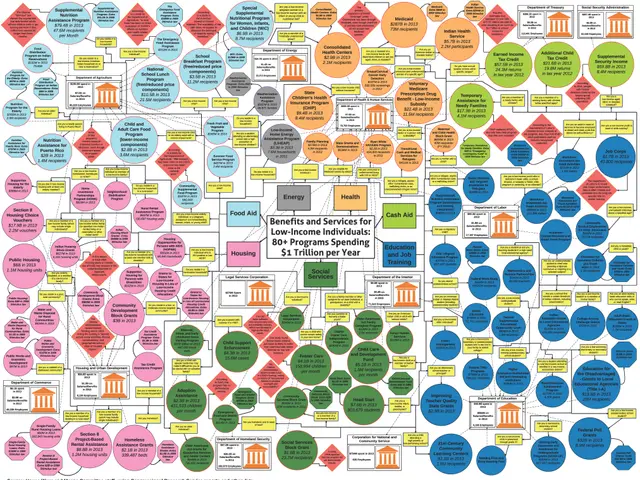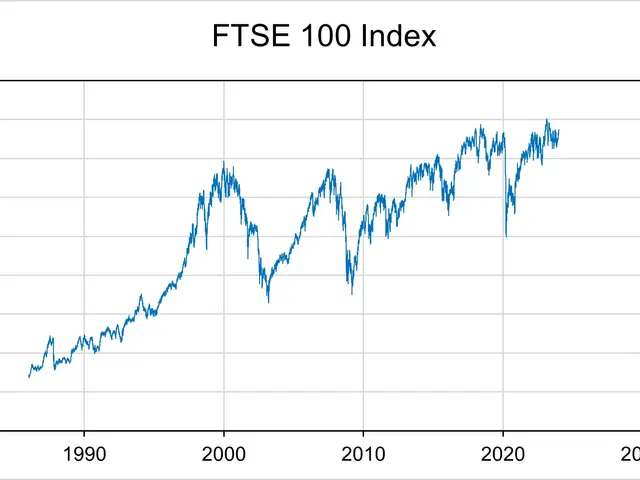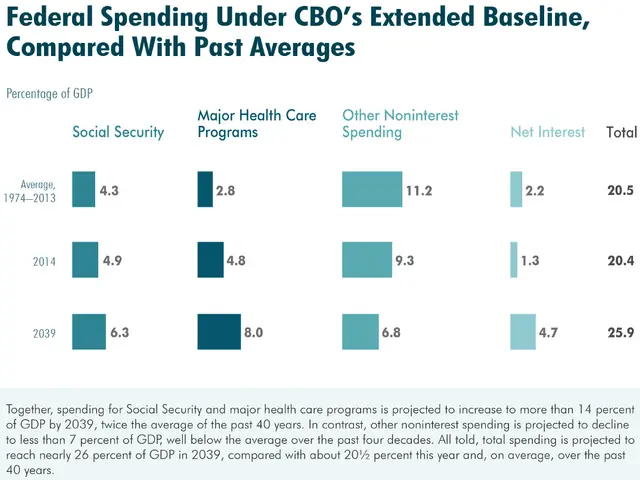Broadcom's Shares Soar as More Customers Opt for Its Custom AI Processor Chips. Will this Stock's Uptrend Persist?
Broadcom (symbol: AVGO 0.25%) saw its shares soaring after reporting record revenue in its fourth fiscal quarter, ending November 3, and announcing plans to create custom AI chips for several major clients. This propelled the stock's gains to surpass 100% for the year so far.
Let's delve deeper into the company's latest figures and insights to determine if this stock's success will carry on.
AI Potential
Investors' enthusiasm was largely driven by the commentary from Broadcom CEO Hock Tan. He revealed that its top three "hyperscaler" clients (those operating massive data centers) aim to deploy 1 million AI chip clusters by 2027. Broadcom's potential market among these three clients alone, considering AI chips and networking equipment, could range between $60 billion to $90 billion in fiscal 2027 alone.
Moreover, Tan mentioned that two additional hyperscaler clients are developing their in-house AI chips, which could significantly expand the addressable market. Broadcom aims to transform these clients into revenue-generating customers by 2027.
According to recent reports, Apple could be one of these new clients, as Apple is said to be collaborating with Broadcom on a new AI server chip, codenamed Baltra. The goal is to utilize the chip for running Apple's AI applications in the cloud. The company is reportedly planning to finalize the chip design within a year.
Moving on to Broadcom's performance, revenue grew by 51% to $14.05 billion in the quarter. However, when excluding contributions from its November 2023 acquisition of VMware, revenue growth was only 11%. Analysts had anticipated revenue of $14.09 billion.
Semiconductor solutions revenue increased by 12% to $8.2 billion, with networking revenue leading the way, up 45% to $4.5 billion, with custom AI networking revenue jumping by 158%. Wireless revenue rose by 7% to $2.2 billion due to higher content. Broadcom confirmed that Apple is still its key partner, albeit with uncertainty over Apple switching to in-house components for Bluetooth and Wi-Fi.
Broadcom reported that server storage-connectivity revenue increased 20% since its previous low six months earlier, now reaching $992 million, and expected further growth. Broadband revenue plummeted by 51% to $465 million, but Broadcom is hopeful that the bottom has been reached in this sector. Industrial sales, responsible for 1% of Broadcom's revenue, dropped 27% to $173 million, but a recovery is anticipated in the second half.
Revenue in the infrastructure software segment skyrocketed by 196% to $5.8 billion, primarily due to the VMware acquisition. However, revenue remained flat sequentially as some deals temporarily moved into the first quarter. As a result, software revenue is expected to rise 41% year-over-year, and 11% sequentially in the first quarter.
Profitability-wise, adjusted earnings per share (EPS) in the quarter rose from $1.11 to $1.42, while adjusted EBITDA soared by 65% year-over-year to $9.1 billion. Broadcom generated $5.6 billion in cash flow from operations and $5.5 billion in free cash flow in the quarter, while generating $20 billion in operating cash flow and $19.4 billion in free cash flow for the year. Broadcom finished the fiscal year with $19.3 billion in cash and equivalents, and $67.6 billion in debt from its earlier VMware acquisition.
For its first-quarter guidance, the company predicted fiscal Q1 revenue of around $14.6 billion, just above the $14.57 billion consensus, and representing approximately 22% growth. Management expects adjusted EBITDA to be around 66% of revenue, or about $9.6 billion.
Will the stock's success persist?
Broadcom's fourth-quarter results were strong but not groundbreaking, with revenue growth of only 11% when excluding the impact of the VM acquisition.
In addition, first-quarter revenue guidance aligned closely with analyst forecasts. That is not typically a factor leading to a stock surge unless the stock was significantly underperforming before the release, which was not the case for Broadcom, which has enjoyed strong stock performance heading into the report.
However, investors are captivated by the custom AI opportunity in front of Broadcom, which seems rather substantial as it attracts more clients seeking alternatives to Nvidia's GPUs to avoid over-reliance. Broadcom's strategy of developing custom chips appears to be gaining traction.
Sure thing, let's change things up a bit:
Mind you, there's a need for some caution when it comes to Broadcom's analysis. To begin with, it's undeniable that a chunk of the market Broadcom mentioned, which Hock Tan touched upon, is likely to head towards Nvidia's GPUs. Secondly, one of these customers might just be ByteDance, who's grappling with the possibility of TikTok being forbidden in the U.S. This casts a significant shadow over how eager this customer might be to up its spending on AI chips.
After its price surge, Broadcom now sports a forward P/E ratio less than 30. While this ratio is higher than its previous several years, investors seem to be factoring in some future, turbocharged growth.
AVGO's (Forward 1y) P/E Ratio courtesy of YCharts.
I'm still fond of Broadcom's AI prospects, but after this substantial stock price leap, I'd suggest holding back on chasing the stock. There remain queries about potentially losing some Apple business, as well as the situation with TikTok, which could affect ByteDance and the ramp-up of its custom chips.
Given Broadcom's strong AI prospects, investors are considering investing more money in the company's finance, particularly in the development of custom AI chips. The potential market among Broadcom's top three hyperscaler clients alone, considering AI chips and networking equipment, could reach between $60 billion to $90 billion in fiscal 2027.
Furthermore, as a strategic move, Broadcom aims to transform its two additional hyperscaler clients into revenue-generating customers by 2027, further increasing the company's opportunities for growth in finance and investing.








